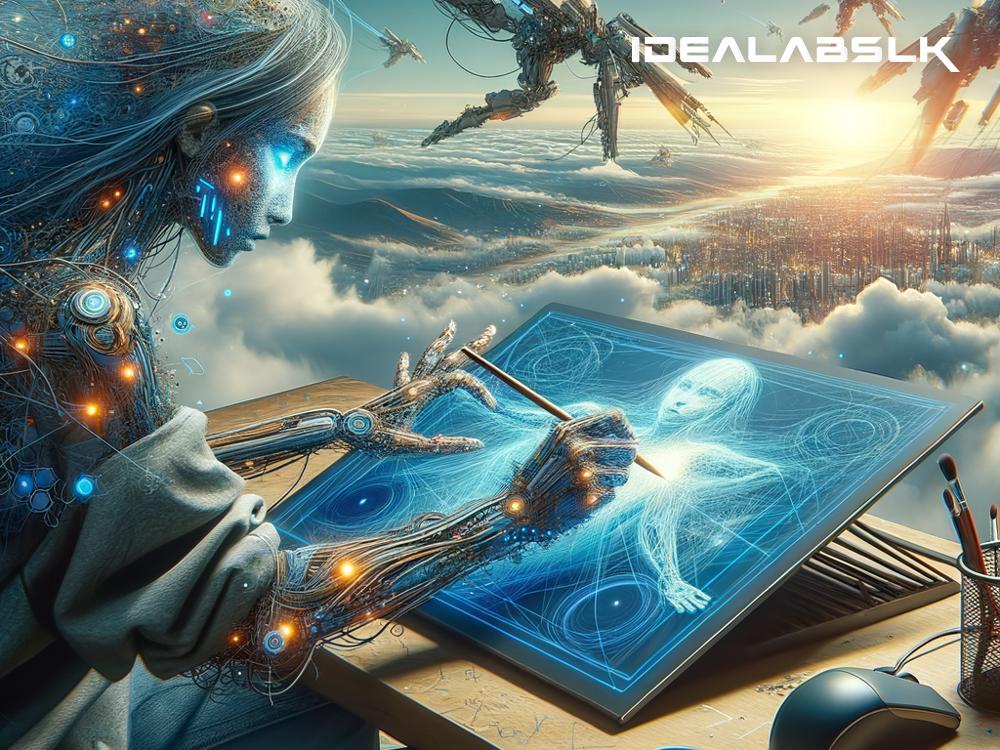The Future of AI in Game Content Generation: How It Will Enable Procedurally Generated Worlds in 2025
The gaming industry has always been on the frontline of embracing cutting-edge technologies, and the rise of Artificial Intelligence (AI) is no exception. AI, with its potential to revolutionize how games are developed and played, is set to become a pivotal component in the future of gaming, especially in the realm of game content generation. Let's dive into how AI is shaping the future of gaming and how it's expected to unfold by 2025.
The Evolution of Game Worlds: From Handcrafted to AI-Generated
Traditionally, game environments and levels were meticulously designed and built by human developers. This process, while allowing for high levels of detail and creativity, is time-consuming and often limits the size and diversity of game worlds. Enter the concept of procedurally generated content – a method where game environments are created automatically by algorithms.
In recent years, procedurally generated content has begun transforming gaming, enabling the creation of vast, dynamic worlds. However, as we approach 2025, AI is poised to take this transformation to the next level, offering unimaginably vast and vibrant worlds tailored to enhance the gaming experience in unprecedented ways.
The Magic of AI in Procedurally Generated Worlds
AI's role in game development is becoming increasingly sophisticated, moving from merely creating large spaces to generating intelligent, immersive worlds that react and evolve based on player interaction. By 2025, AI-driven procedural generation will enable the creation of game environments that are not only infinite in scale but also rich in detail and diversity.
Imagine entering a game where every tree, every building, every character has been uniquely generated for your experience. No two players would encounter the same world, making each gaming experience truly unique. AI will enable these worlds to adapt in real-time, changing weather patterns, wildlife behavior, and even the storyline based on your actions, creating a living, breathing environment.
The Benefits of AI-driven Game Worlds
The shift towards AI-driven procedural generation carries several significant benefits for both developers and players:
1. Endless Exploration: With AI-generated worlds, players can explore endless landscapes without ever encountering the same scenario twice. This level of unpredictability and novelty keeps the game exciting and engaging for a longer period.
2. Cost Efficiency for Developers: Developing detailed game worlds manually requires enormous resources and man-hours. AI automation can drastically reduce these costs, allowing developers to focus on enhancing other aspects of the game, such as plot development and gameplay mechanics.
3. Personalized Gaming Experiences: AI can tailor game environments and challenges to suit the individual preferences and play styles of each player, making games more engaging and accessible to a broader audience.
4. Emergent Gameplay: AI-generated worlds can lead to scenarios that even the game’s developers didn’t anticipate, offering players unique stories and experiences that arise organically as they interact with the game environment.
Challenges and Considerations
However, the path to achieving these AI-driven worlds is not without its challenges. Creating AI systems sophisticated enough to generate compelling, diverse content requires substantial advancements in technology and machine learning. Additionally, ensuring that AI-generated content maintains a level of quality and consistency that matches handcrafted environments is a significant hurdle.
Furthermore, ethical considerations around the unpredictability of procedurally generated content must be addressed. Developers will need to find ways to prevent AI from inadvertently creating offensive or harmful content, which could detract from the gaming experience.
Looking Ahead: A New Era of Gaming in 2025
As we look towards 2025, the prospects of AI in game content generation are both thrilling and daunting. The potential for creating procedurally generated worlds that offer infinite exploration and personalized experiences promises to usher in a new era of gaming. These AI-generated environments will not only expand the boundaries of what games can be but also significantly transform how we interact with and experience virtual worlds.
In the end, the future of AI in game content generation is not just about creating bigger and more detailed worlds, but about crafting experiences that are more immersive, interactive, and tailored to each player. As developers continue to push the boundaries of AI, we stand on the cusp of a gaming revolution, one where the line between the virtual and the real continues to blur, offering experiences beyond our wildest imaginations.

